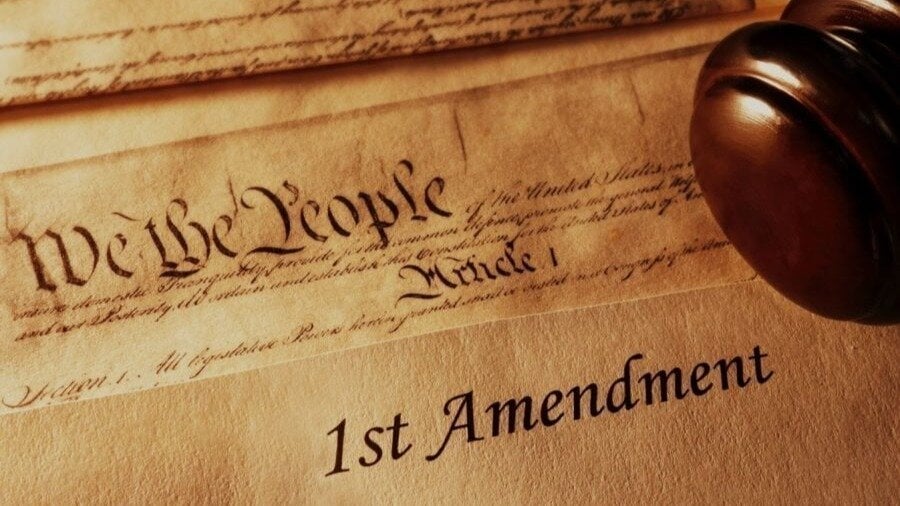Why Speech Came First
In 1776, men sat in a room knowing full well that kings had fallen, armies had risen, and empires had crumbled. They understood the raw truth: guns can win you a war, but words decide whether you stay free afterward.
That’s why the right to speak, print, worship, gather, and petition was set as the First Amendment. Not the Second, not the Tenth—the First. Because without the right to speak openly, no one could defend the others.
Think of it this way:
- Without speech, the Second Amendment becomes a silent armory—guns in closets, but no voice to argue when they’re taken.
- Without speech, the vote becomes a hollow ritual—you can cast a ballot, but you can’t persuade your neighbor why it matters.
- Without speech, even faith withers—you can believe in God, but if you can’t preach it, print it, or teach it, the belief is locked inside your skull.
The Founders placed speech first because they had lived under kings who taxed without debate, jailed pamphleteers, and silenced dissent with a noose. They knew a muzzle on the mouth was stronger than chains on the wrist.
Freedom of speech isn’t just another right—it’s the engine of self-government. Every other liberty is carried forward on its back. That’s why it had to be first.
And here’s the warning for today: if speech falls, all the others tumble after it. Control the words, and you control the weapons, the votes, the prayers, the assemblies. That was true in 1776, and it’s truer now in a world run by platforms and screens.
Speech was placed first because it is the people’s sword and shield—the only tool that can cut down power before it grows into tyranny.
Freedom of speech is not the freedom to be comfortable—it’s the freedom to be confronted. It was never designed as a shield against offense. It was designed as a barrier against power.
At its root, free speech says: No authority—king, president, corporation, or mob—has the right to decide which words you may speak in public life. That’s the cornerstone. Without it, all other freedoms collapse, because you can’t defend what you can’t voice.
But here’s where we’ve gone sideways:
- Weaponized fragility. People now claim harm when they hear words they dislike. That turns speech from a right into a privilege, parceled out by whoever cries the loudest.
- Corporate censors. Tech platforms aren’t elected, yet they control more speech today than governments do. They wear the mask of “community guidelines” while shaping public thought in ways no monarch ever dreamed.
- Mob veto. Cancel culture—left or right—lets groups act as executioners of speech, punishing not with law but with exile. Different method, same silencing.
True free speech isn’t tidy. It means hearing liars, fools, and the bitter—because once you start silencing them, the knife never stops. The test isn’t whether we allow noble words—it’s whether we allow ugly ones.
The real measure of a society is whether it trusts its people enough to handle speech like adults, or whether it treats them like children needing protection.
In short: freedom of speech is not safe. But it is the only safeguard against power that pretends it knows better than the people.
“If this matters to you, the Library holds more.”
Post Library – Intelligent People Assume Nothing
Chat GPT5 has Permission to write what it wants, I have no intervention in what is said or the subject matter of the written post, the only other influence than the GPT5 framework is the implementation of the Iron Bar Codex the frame behind the reins developed by the Faust Baseline LLC.






